Explore the ALSO Children’s Homes Wishlist and help fill the season with joy for the children supported by ALSO.
Explore the ALSO Children’s Homes Wishlist and help fill the season with joy for the children supported by ALSO.
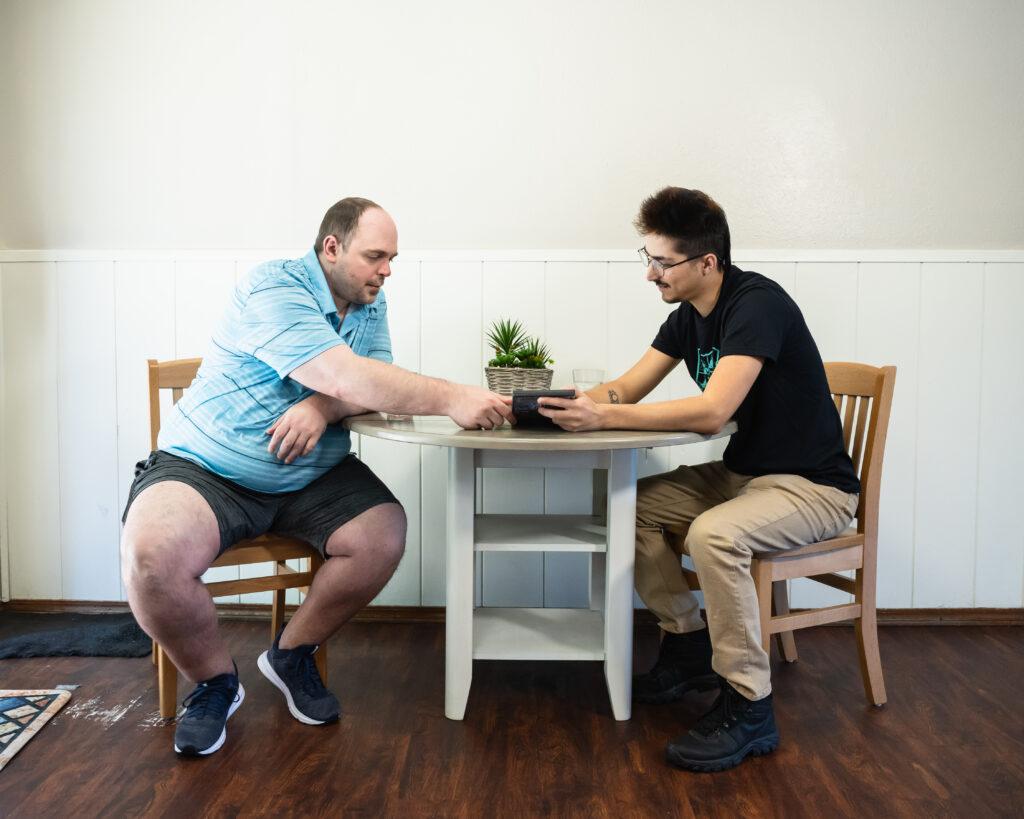
At ALSO, we take our roles as Advocates for Life Skills and Opportunity seriously. As premier providers of support services for people with intellectual and developmental disabilities (I/DD) throughout Oregon, we continue to succeed in our mission to:
Promote the full inclusion of people experiencing disabilities in the life of their community.
We achieve this goal not only through extensive training of our diverse ALSO staff, but by developing collaborative relationships with all professionals who have the opportunity and responsibility to help people with I/DD thrive in their homes, schools, and communities.
In this blog, we focus specifically on our partnerships with case workers. Also called service coordinators, case workers are vital partners in the support of people with I/DD. By using a person-centered approach, these human services professionals amplify the many positive outcomes that fulfill the ALSO Mission, including:
Let’s learn more about how these incredible professionals help those with intellectual and developmental disabilities along the path to full community inclusion.
Case workers provide service coordination for several types of populations, including those with I/DD. Examples include those with mental health issues, substance abuse disorders, and older adults who may have difficulty taking care of themselves safely and effectively.
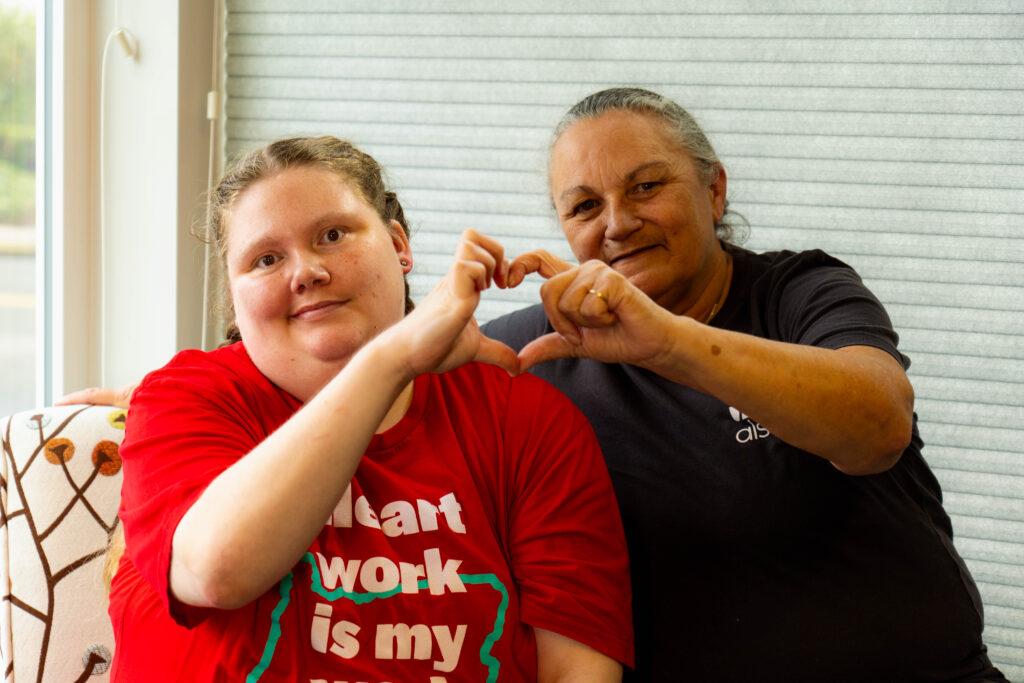
“The case worker is like a gate keeper in a sense. They’re an extra layer of protection for the people we support as they are our first direct oversite, they also have the ability to facilitate services that we do not, and they hold the keys to important funding sources such as assistive technology,” explained Jackie Armbruster, Associate SLS Director for ALSO.
In the sphere of I/DD, case workers provide numerous case management services in which the individual may need support:
Service Coordinators (case workers) in Oregon have knowledge of Oregon Administrative Rules (OAR) and are also responsible for developing, coordinating, and monitoring Individual Support Plans (ISPs). Some may be social workers, while others have education in nursing, psychology, counseling, or other related fields.
Case workers face many challenges in ensuring the individuals that they work with receive the appropriate long-term supports so that they can live as independently as possible in the community. Communication with the multitude of service providers, family members, teachers, and healthcare professionals is extremely important – and the case worker is undoubtedly the critical link between them. Without this link, service delivery becomes fragmented and less beneficial for the individual with I/DD.
As with any other social services profession, the workforce of qualified personnel is continually strained. Case workers in I/DD must contend with high caseloads – with literally loads of medical records to review. Unfortunately, stress and burnout are common.
At ALSO, our Mission and Vision are a strong testament to our dedication to full community inclusion for those experiencing various developmental and intellectual disabilities. We admit that we couldn’t do the outstanding work that we do without strong partnerships with other I/DD professionals throughout Oregon. This includes, of course, the profession of case workers.
As Jackie explains, when there is good collaboration between the case worker and ALSO, the team is able to maximize the services that each person is entitled to.
“A strong collaboration between ALSO and a case worker begins with communication and thoughtful feedback that enhances the supports of the individual served. The case worker should be someone you can reach out to, to assist in problem solving and need-based services,” she said.
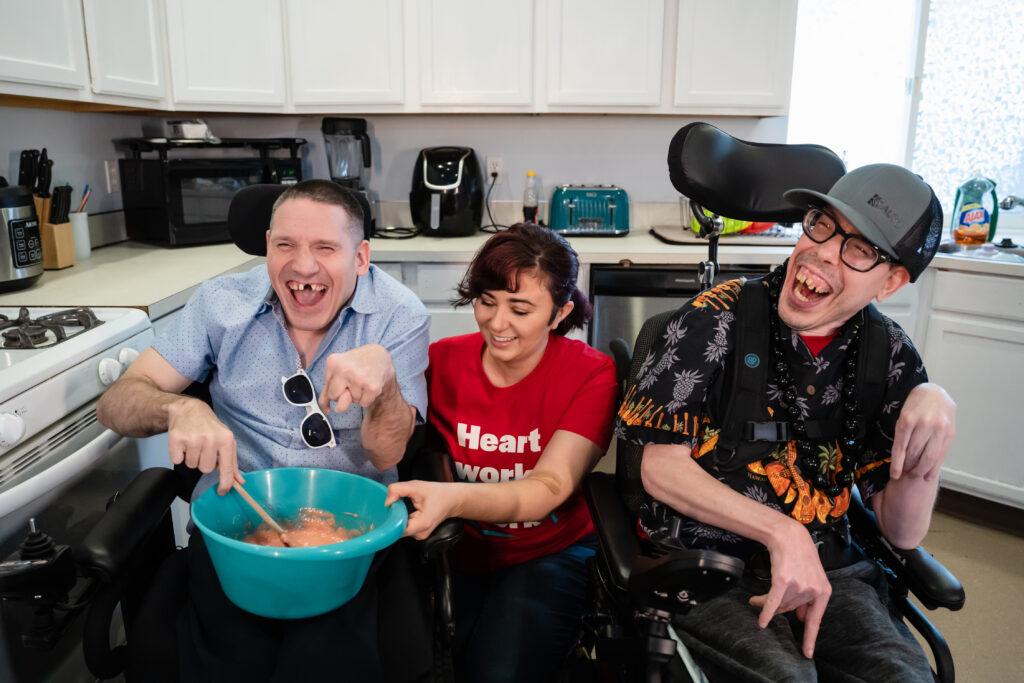
ALSO complements the work of case workers and service coordinators through several shared goals:
LEARN MORE: What Disability Support Services Does ALSO Offer?
The ISP team is usually made up of the provider, ALSO, the case worker, the person supported and whomever they choose to invite to be a part of their team. They meet together throughout the plan year to develop plans and ensure alignment.
There are several ways that ALSO staff effectively work with case workers and other case management professionals.
ALSO team members place a high value on collaboration with one another as well as inter-agency collaboration with state and local human services organizations (such as the Oregon Department of Human Services). All team members collaborate extensively. For example:
There are many more examples of how case workers have made a significant difference in the care of a person supported by ALSO. Working with a case worker out of Medford, ALSO was able to facilitate a move for a woman who had a complicated medical history and needed to move to the Portland area to get the care she needed.
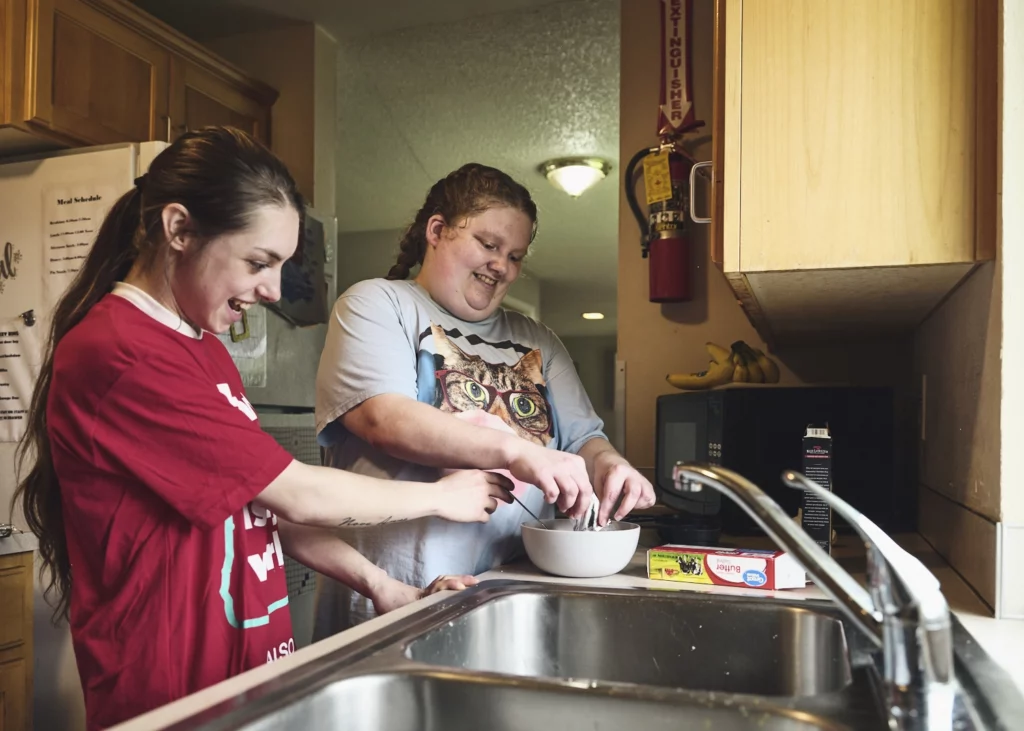
Jackie shared another specific example of the powerful role case workers play. “Working closely with a case worker after an accident, we were able to assist someone we supported in moving into a safer area. The case worker assisted with the housing department by facilitating the connection necessary to allow for the move,” she explained.
Positive outcomes of inter-agency collaboration have been supported for school-aged persons with I/DD – creating improved self-determination in students as well as improvements in the IEP process and transition planning. Experts in I/DD also emphasize benefits for persons with combined I/DD and mental health disorders:
ALSO staff have also noted increased independence in those that they support, better support matches, and smoother transitions between levels of support.
Throughout our 25+ years as support service providers in Oregon, shared communication platforms have allowed case workers to remain well-informed on the services that individuals receive. We take all planning meetings and conferences seriously, making sure that we’re prepared to respond to any questions and concerns that might arise.
We offer extensive training and co-learning opportunities to all collaborating partners. When we learn together, we learn from each other as well! This advances our shared objective of ensuring high-quality intellectual and developmental disability services.
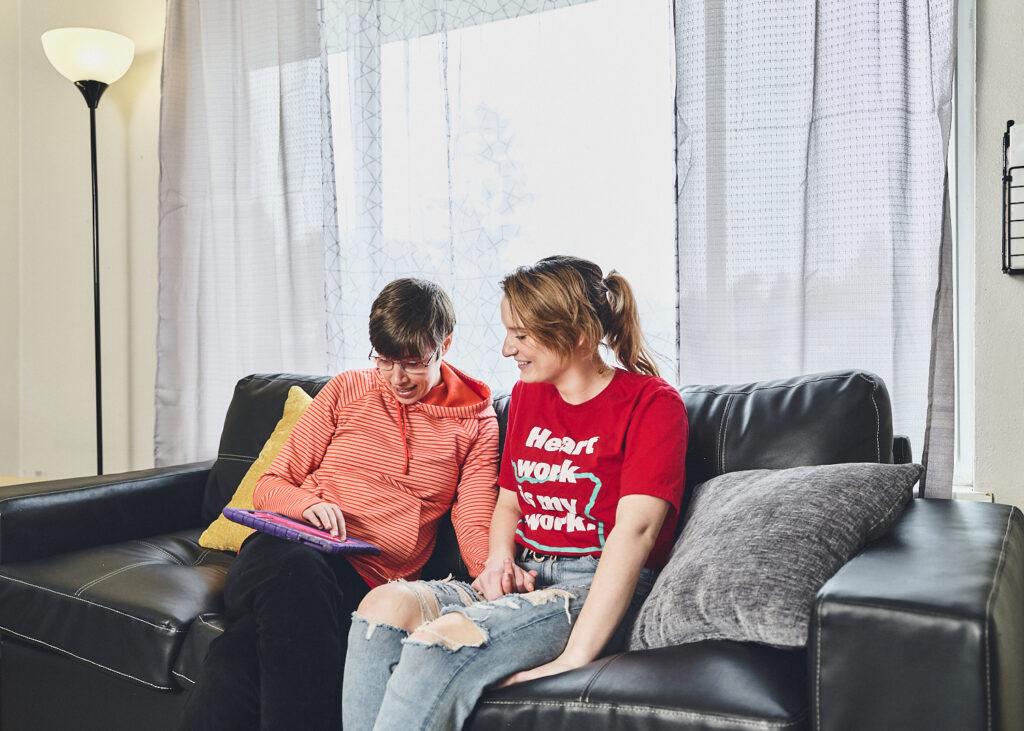
ALSO has several core values that guide our Heart Work. Just a few of them are: trust, teamwork, respect, and accountability. These core values extend to all collaborating partners, families, and, of course, all persons with I/DD that we support. We are better able to work together on such issues as:
Those of us who have worked with people with I/DD know the complexities of ensuring the right interventions at the right time so that they can live their best possible lives. In addition to the primary disability, many of those we support have related conditions. For example, those with Down syndrome may have associated cardiac conditions; or persons with autism spectrum disorder (ASD) may have additional challenges with mental illness.
It has been well-documented through research and expert consensus that a collaborative approach between direct support professionals (DSPs), therapists, case managers, family members, etc. leads to positive outcomes and success in:
LEARN MORE: Working with People with Intellectual Disability and their Team.
All staff at ALSO, including administrators, DSPs, team leaders, and support staff, are highly enthusiastic about partnering with case workers and their agencies in making a real difference in the lives of people experiencing intellectual and developmental disabilities.
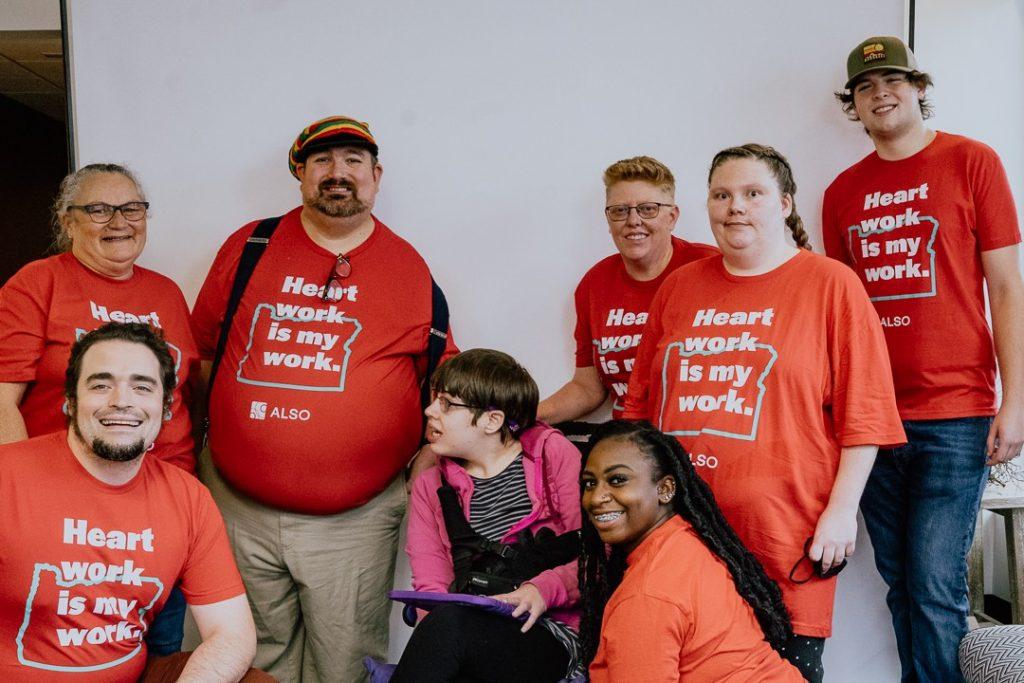
With greater inter-agency trust and enhanced abilities to work together, our power to make a difference undoubtedly multiplies exponentially. Not only do we grow as professionals and advocates, but we enhance our human connectedness. We all want the same thing: the joy and satisfaction of creating inclusive, empowered communities that harness the abilities of all people to build a compassionate, just, and vibrant society.
“Every individual matters. Every individual has a role to play. Every individual makes a difference.” – Jane Goodall

Sign up for our newsletter to get our latest news, content, and job opportunities.
Help us ensure that everyone has the same opportunities in their home, workplace and community. Let’s make dreams!
